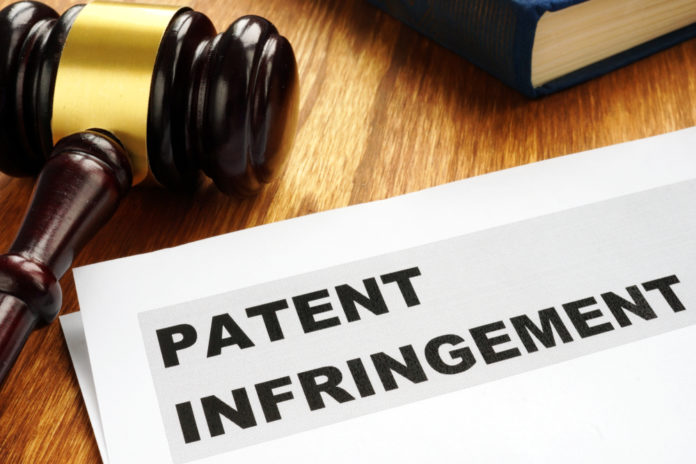Motion to dismiss contractor’s claim is denied. The contractor alleged the government had breached a research collaboration agreement by (1) not notifying the contractor about inventions created under the agreements, and (2) obtaining patents for those inventions. The government argued the breach claims were barred by 28 U.S.C. 1500, which precludes the COFC from hearing a claim which a plaintiff has already asserted against the government in another court. The government argued that a patent-infringement suit, which the government had brought against the contractor in district court, negated the contractor’s COFC suit. The court disagreed reasoning that 28 U.S.C. 1500 only bar claims asserted in another court. The contractor had only asserted defenses in the district suit, not claims. The assertion of defenses did not trigger § 1500’s jurisdictional bar.
Gilead Sciences, Inc. had a series of contracts with the Centers for Disease Control as part of a collaboration on research on antiretroviral agents for HIV prevention. Four of the contracts were Material Transfer Agreements under which Gilead provided certain compounds to CDC to be used in HIV research. The Material agreements stated that the government would promptly notify Gilead of any inventions derived from the work performed under the agreements.
Gilead also had a Clinical Trial Agreement with the CDC under which it provided CDC products for a clinical trial in Botswana. The Clinical Trial Agreement stated that the government would not seek patent protection in connection with any inventions that derive from use of drugs Gilead provided for the clinical trial.
In 2006, the CDC filed a patent application for inventions that CDC made in the course of research conducted under the material agreements. A year later, the CDC filed another patent application that relied on information derived the Botswana clinical trial that used drugs Gilead had provided.
The CDC ultimately obtained patents for its inventions. After obtaining the patents, the CDC notified Gilead that it was marketing drugs that may be covered by patents. Gilead responded that the patents were not valid and that the government had breached the Material and Clinical Trial agreements by obtaining the patents.
The government sued CDC in district court in 2019, alleging that Gilead was marketing products covered by the CDC’s patents. Gilead asserted several defenses in the suit including the equitable doctrine of unclean hands. In 2020, Gilead filed suit in the Court of Federal Claims alleging that the government had breached the Material and Clinical Trial agreements by not notifying the company of inventions and then seeking patents. The government moved to dismiss Gilead’s COFC claims.
The government first claimed that Gilead’s breach claims were barred by the six-year statute of limitations. The government argued that Gilead’s claims accrued in 2006 when CDC filed its first patent application, so its 2020 suit was untimely.
The court reasoned that a claim accrues when all the events have occurred to fix the government’s alleged liability. A viable claim for breach of contract requires, among other things, damages caused by the breach. Because damages are a necessary element of a breach claim, Gilead’s claim did not accrue until it suffered damages. Gilead alleged that the government’s actions increased the cost of a potential license and exposed Gilead to patent-infringement damages. The court concluded that Gilead could not have been damaged until 2015 when the CDC first received a patent. It was only at that point the government gained the right to enforce the patent against Gilead. Thus, Gilead’s 2020 suit fell within the six-year limitations period.
Next, the government argued that Gilead’s claims were barred by 28 U.S.C. § 1500. Under that statute, the COFC does not have jurisdiction over any claim for or in respect to which the plaintiff has pending in any suit against the United States. The government argued that the patent infringement suit in district court was therefore barred the breach claim in the COFC.
But the court found that §1500 speaks in terms of claims, not defenses, pending in another suit. Gilead had asserted defenses to the patent-infringement suit, but those defenses were readily distinguishable from the claims asserted in the COFC suit. Indeed, the court reasoned, even if Gilead’s unclean hands defense in the district court suit could be characterized as a claim, the claims in the COFC suit were not based on the same operative facts. While Gilead’s breach allegations served as one of the bases of the unclean hands defense, the defense included additional allegations not included in the breach claim. Thus, the district court could find the patent unenforceable under the unclean hands defense without finding that the government breached. The facts giving rise to the breach claim before the COFC were not determinative of the unclean hands defense in district court.
Finally, the government moved to dismiss Gilead’s suit for failure to state a claim. The government argued that Gilead’s claim of reputational harm sounded in tort not contract. The court, however, reasoned that while Gilead’s complaint may have mentioned damages that were not recoverable, this did not invalidate the breach claim.
The government also alleged that Gilead’s complaint had not established but-for causation for its theories of damages. The court reasoned that it must construe the complaint in the light most favorable of the plaintiff. Here, Gilead had sufficiently pleaded that the government’s failure to notify it of the inventions had resulted in direct and foreseeable damages.
Gilead is represented by Ronald C. Machen, Jr., David B. Bassett, Vinita Ferrera, Emily R. Whelan, George P. Varghese, Timothy A. Cook, and Stephanie Lin of Wilmer Cutler Pickering Hale and Dorr LLP. The government is represented by Walter W. Brown, Jeffrey Bossert Clark, Gary L. Hausken, Philip Charles Sternhell, Amanda K. Kelly, and Patrick C. Holvey of the Department of Justice.




